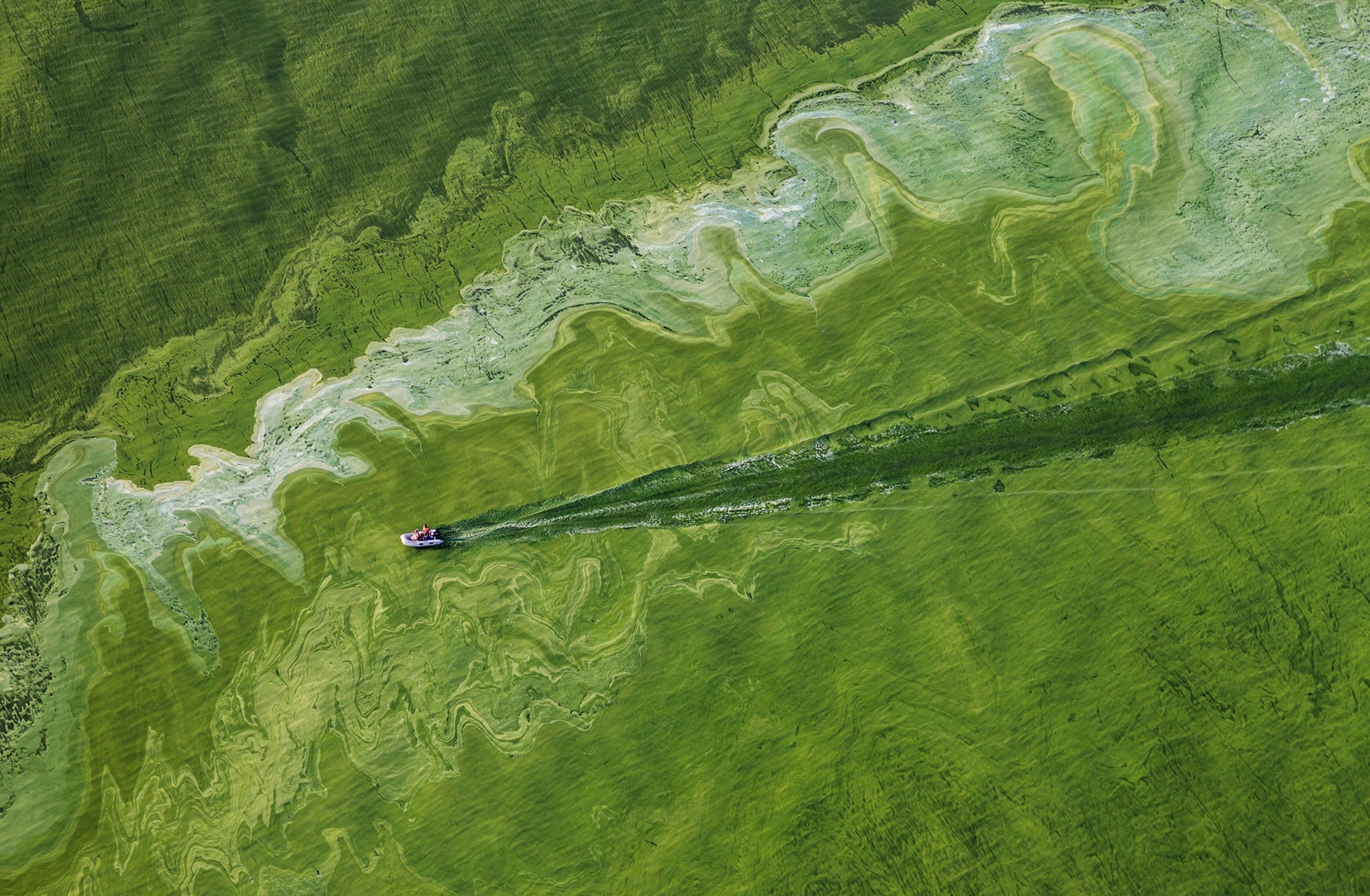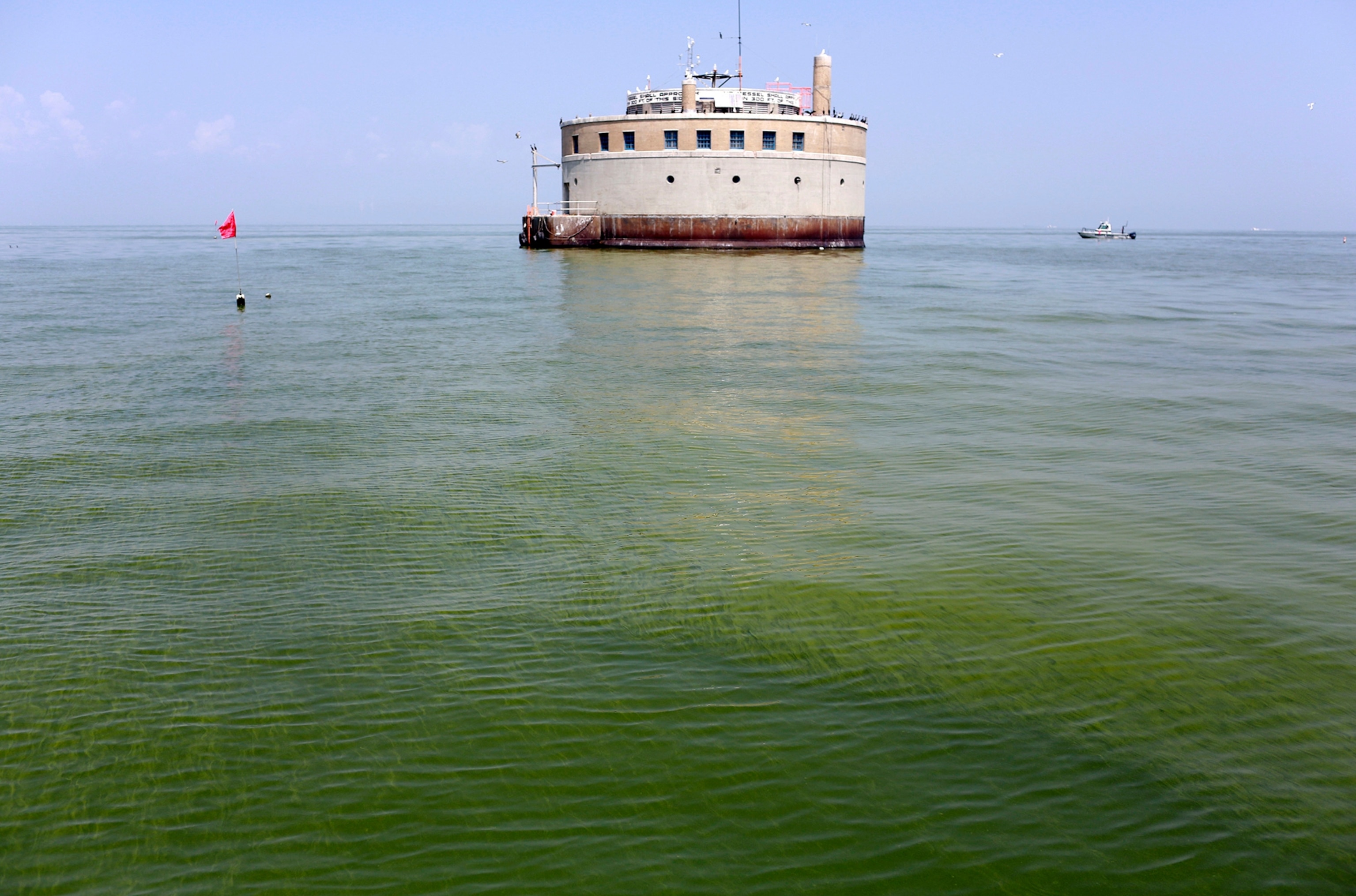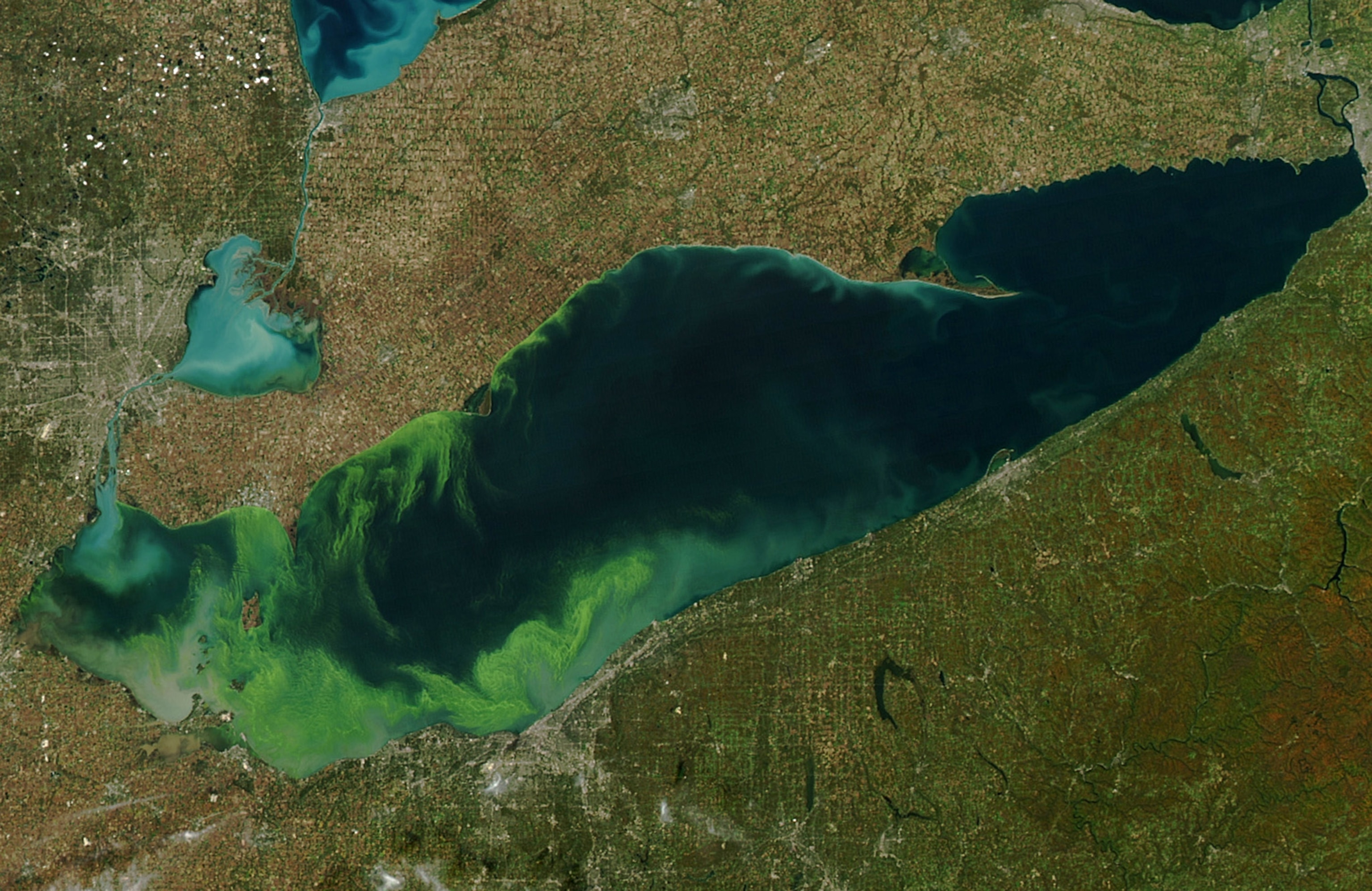
Driven by Climate Change, Algae Blooms Behind Ohio Water Scare Are New Normal
Climate change and increased runoff are triggering more potentially toxic blooms.
The toxic algae bloom in Lake Erie that provoked last weekend's tap water ban in Toledo, Ohio—where nearly half a million people were told not to use water for drinking, cooking, or bathing—is a preview of similar problems to come around the world, scientists say, thanks in part to climate change.
Northwest Ohio's water ban was lifted Monday morning, but experts say harmful algal blooms that can turn tap water toxic and kill wildlife are becoming more common in coastal oceans and in freshwater across the United States and around the globe.
A toxic algae bloom killed record numbers of manatees in Florida early last year. Another bloom put a record number of marine mammals into California rehabilitation centers earlier this year. (See "Record Number of Seals and Sea Lions Rescued in California.") They can also result in massive fish kills.
The blooms produce toxins that can cause neurological problems like paralysis and seizures in people, though such effects have been best documented in marine mammals and birds.
"Some of [the increase in blooms] can be attributed to global climate change," said Timothy Davis, a research ecologist specializing in harmful algal blooms with the National Oceanic and Atmospheric Administration's (NOAA) Great Lakes Environmental Research Laboratory in Ann Arbor, Michigan. (See "Pictures: Extreme Algae Blooms Expanding Worldwide.")

The algae and bacteria responsible for blooms, including the one that created Toledo's tap water mess—a type of bacteria known as Microcystis—need warm temperatures and the nutrients phosphorus and nitrogen to grow. Microcystis is a kind of cyanobacteria, often mistakenly referred to as blue-green algae.
Climate change is creating warming waters in many parts of the world, including the Great Lakes. Global warming is also boosting storm intensities in some parts of the world, which can increase the terrestrial runoff that supplies the nutrients that feed algae blooms. (Read about our "fertilized world" in National Geographic magazine.)
The nitrogen and phosphorous in the runoff come from leaky septic tanks and from fertilizers used on farms and lawns.
Lake Erie's shallow depths—it's the shallowest of the Great Lakes, with an average depth of 62 feet (19 meters)—also contributed to this year's algae blooms, said Eric Anderson, a physical oceanographer with NOAA's Great Lakes Environmental Research Laboratory. The western basin, the location of the current algae bloom, is even shallower, with an average depth of less than 26 feet (8 meters).
The Great Lakes ice extent last winter was the second largest on record, Anderson said, with ice covering Lake Erie well into April. But because Lake Erie is so shallow, water temperatures were able to recover quickly. " Average surface water temperature in the lake has rebounded to within 1.68 degrees of the average of the last ten years," he said.
Toxins from algal blooms are of particular concern to water managers around Lake Erie, said Anderson.
Strong winds can drive blooms at the water's surface down into the depths of the lake, where water intake pipes can draw contaminated water into systems serving municipalities, he said.
It's unclear whether that happened in Toledo. Samples from other plants that also draw their water from Lake Erie lacked the microcystin toxin that prompted Toledo's tap water ban, raising questions about how the toxins got into the city's water.

A Matter of Circumstance
Not every algae bloom produces toxins. Some kinds of Microcystis blooms—like the one in Lake Erie—produce toxins, while others don't.
About half of the Microcystis blooms around the world aren't toxic, said Davis, but "it looks like climate change might be driving these blooms to more toxic strains." Researchers are still trying to figure out why that may be happening.
Toxic algal blooms can seriously impact the health and economies of coastal and lakeside communities. The microcystin that was found in Toledo's water can cause vomiting, nausea, dizziness, diarrhea, or numbness.

When these blooms run out of steam and die, bacteria feasting on the decaying matter can suck almost all the oxygen out of the water. This can result in another ecological problem: "dead zones," or areas of the ocean devoid of life.
Increases in algae blooms are also expanding dead zones around the world. The Gulf of Mexico hosted one last summer about the size of Connecticut. (See "World's Largest Dead Zone Suffocating Sea.")
It doesn't take very long for aquatic systems like Lake Erie to get thrown off balance, Davis said. But it will take patience and long-term management to get the lake healthy again.
"The biggest thing that people need to be aware of is that there's no short-term solution," he said. "Our lakes and coastal systems are out of balance."
Follow Jane J. Lee on Twitter.